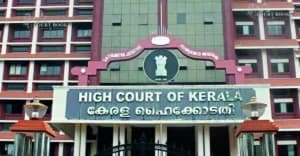The Tamil Nadu government has defended its decision to impose restrictions on online gaming, citing the need to protect the younger population. In a plea filed by online gaming companies challenging the night ban and mandatory KYC verification, the state government asserted its right to regulate such activities for public welfare. The matter was heard by a bench comprising Justice SM Subramaniam and Justice K Rajasekar in the Madras High Court.
The state emphasized that the majority of online gamers were teenagers between the ages of 14 and 16, a vulnerable demographic that required protection.
"The state has a parental right over its people and is duty-bound to take care of their health," "Restrictions are within Article 19(1) and Article 19(6). There is no disproportionality in restricting gaming during night hours. The state has to exercise its parental right for the larger public good as long as it remains valid,"
Read Also:- Madras High Court Directs Senior Advocate to Investigate Alleged Exam Conducted by Madras University
Legal Grounds for Restriction
The Advocate General, PS Raman, argued that the restrictions were in line with Articles 19(2) and 19(6) of the Constitution, which allow reasonable limitations in the interest of public welfare.
He further explained that the online gaming restrictions were intended to prevent minors from engaging in excessive gaming and monetary losses.
A key contention in the plea was the mandatory Aadhaar-based KYC verification. The government defended this requirement, stating that Aadhaar provided a secure two-step verification process through OTP authentication, minimizing the risk of minors bypassing restrictions.
"If any other document is permitted, a minor could easily misuse it to access these games. Aadhaar verification ensures that only authorized individuals can participate,"
"There is no absolute prohibition on online gaming. Players choose the convenience of playing online, and for that convenience, a minor inconvenience like Aadhaar verification is required. The regulation is not seeking personal biometric data but only verifying age,"
Read Also:- "Justice Hurried Is Justice Buried": Madras High Court Upholds Order Quashing Hasty Disciplinary Proceedings
Additional Advocate General Amit Anand Tiwari, representing the Tamil Nadu government in the Supreme Court, highlighted the societal consequences of unrestricted online gaming.
He further argued that the regulations did not impose a complete ban but only introduced reasonable restrictions to ensure responsible gaming.
The Tamil Nadu government justified its right to impose these regulations, referencing past court rulings that upheld the state’s power to enforce time and monetary limits under Section 5 of the Tamil Nadu Prohibition of Online Gambling and Regulation of Online Games Act, 2022.
Additionally, the government argued that even though IT Rules exist at the central level, no self-regulatory body had been notified under Rule 4A, meaning there was no conflict between state and central laws.
"Even if there is an overlap between central and state law, it does not render the state law invalid. Both can coexist,"
Read Also:- Madras High Court: Grama Natham Land Becomes Private Property Upon Recognized Occupation
After considering the arguments presented by the Tamil Nadu government, the Madras High Court adjourned the matter to April 7 for further deliberations and a response from the petitioners.
Case Title: Play Games 24x7 Private Limited And Anr Vs State Of Tamil Nadu And Ors & Connected Matters
Case No: WP 6784 of 2025














